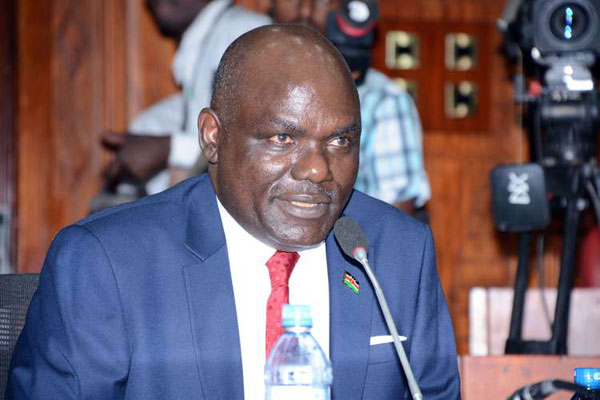Degree rule sends chill up Kajiado MCAs spine

Declaration by the Independent Electoral and Boundaries Commission that Ward Rep aspirants must hold a degree has caused jitters at the Kajiado County Assembly.
Members of the County Assembly have come out guns blazing to oppose the proposal, terming it silent injustice and barbaric.
Currently, only 10 out of 41 MCAs in Kajiado have degrees with majority currently enrolled for diploma courses.
The MCAs, including those with degree certificates, downplayed the requirement, terming it as irrelevant and uncalled for.
Speaking to People Daily, Imaroro Ward Rep Amos Peshut said the proposal was over ambitious; arguing that decision-making on elective seats should be based on values.
“This proposal is meant to create a wide gap between the rich and the poor. Education is an expensive affair in Kenya and it, therefore, means those who were privileged to access education to the degree level are special compared to us.
It is an illustration of the dynasty versus hustler narrative,” said Peshut, who has no university education.
Competent individuals
Peshut argues that performance and competency of any leader cannot be pegged on academic qualifications but on determination.
Peshut said there are sufficient technical staff in the legislative arm of government and as long as one is able to communicate and write in English and Swahili, he should be eligible to serve as a Ward Rep.
He argues that the degree requirement will open room for rogue youth to seek the elective seats at the expense of mature and competent individuals.
Peshut pointed out that some wards, especially in the remote parts of the county have no single Maasai with a university degree.
“Every ward learns about issues of legislation practically upon being elected and sworn in. Even those with degrees have to be trained on how to conduct them.
As long as an elected MCA can communicate, all the technical work is handled by other staffers,” said Nkaimurunya MCA Waisha Nguru, a degree holder.
“It is not the academic qualification that informs the oversight role one does but their personal commitment and understanding of challenges of his or her people.
We have very knowledgeable people who are illiterate. Academic qualifications are important but they do not define leadership,” she told People Daily.
“What will happen to those wards where the level of literacy is still very low and they have no degree holders?
I am a degree holder but on this I totally disagree that a degree certificate should be a requirement for an MCA aspirant,” said Ewuaso OonKidong’i Ward Rep Kilesi Ngossor.
Deep understanding
“Voters have a third eye when it comes to identifying leaders who can serve their best interest. We have masters and PhD holders who are very poor leaders.
We have very reasonable leaders who best understand the challenges of their wards and given a chance with or without a degree they can transform locals’ lives in terms of development, ’’added Ngossor.
However, Speaker Johnson Osoi differs with the Ward Reps, saying university education was crucial in facilitating good governance.
Having served as the Speaker since the inception of devolution in 2013, Osoi says Ward Reps with little or no academic qualifications make the Assembly business too difficult.
“Making law entails having reasonable academic qualifications so as to strike a balance on management and exploitation of county government resources.
Illiteracy at times makes some MCAs think of just opinions not pegged on the law that we must adhere to as a legislative arm.
Budgets and expenditure planning entails some deep understanding of law,” argues the Speaker.
“A degree holder will quickly master the law requirements independently. Those with no or little academic knowledge will mainly make influenced decisions of those they perceive to be knowledgeable.
From my experience, the degree academic threshold for MCAs is among the best proposals I have heard in the recent past,’’ stated Osoi.
Kitengela Ward MCA Paul Matuyia also supports the degree requirement, saying it will challenge communities to educate children.
“Inasmuch as the levels of education is still low in some communities, this is a wake up call on the importance of education. Instead of criticising IEBC proposal leaders should be in the forefront embracing it,” said Matuyia.








